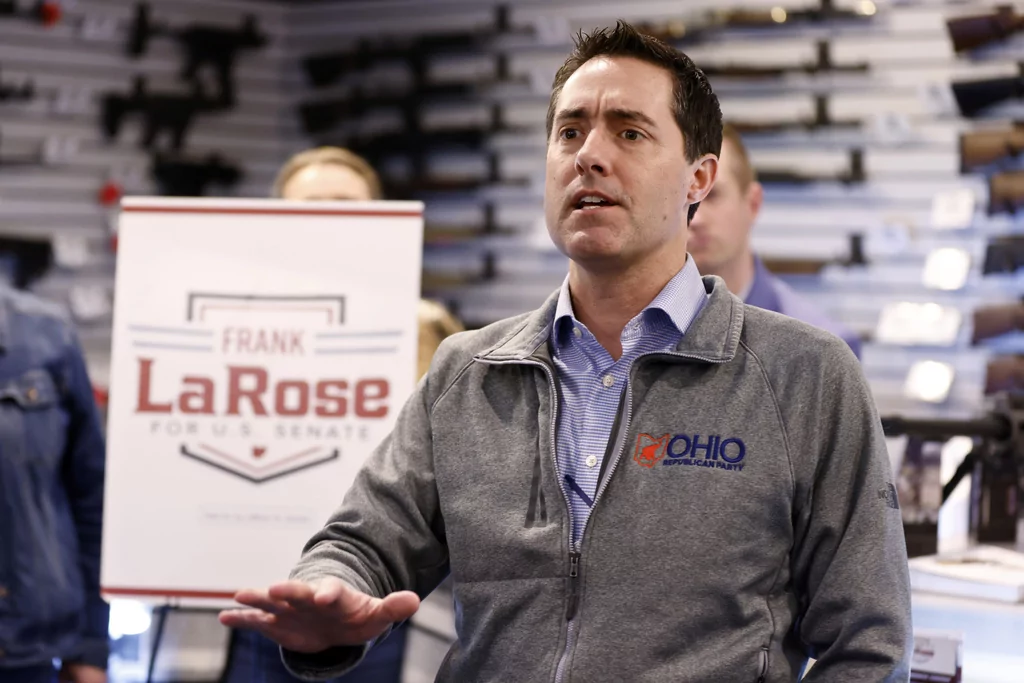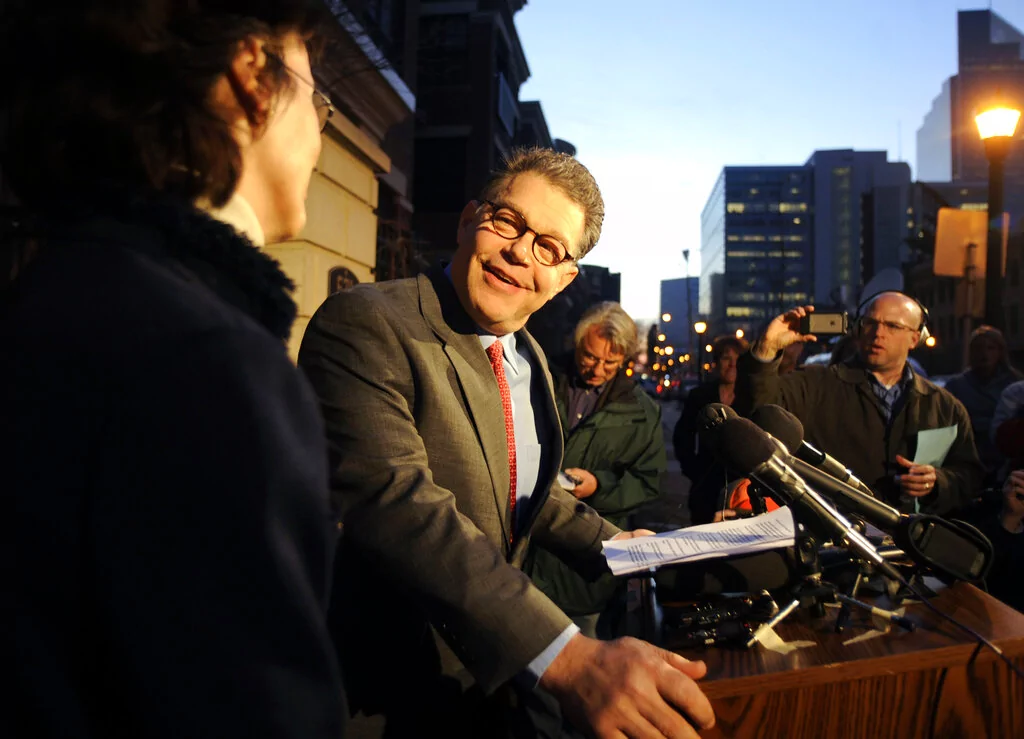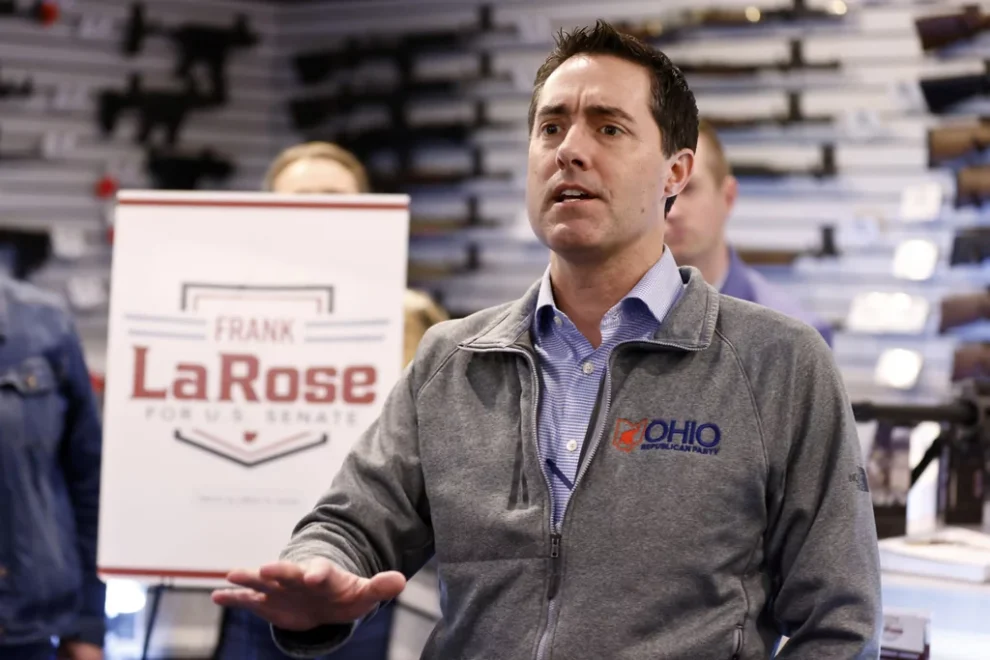When a key swing state announced a month before the 2024 presidential election that it had stripped 750,000 people from its list of registered voters in less than two years, alarm abounded.
North Carolina’s announcement had conspicuous timing, but other than that, it should have been non-controversial.
Election officials’ otherwise mundane task of removing ineligible voters from their voter rolls has, however, become mired in partisan conflict and legal fights, and it is attracting growing attention as Election Day nears.
Often described as “voter list maintenance,” removing people who have moved, died, received certain criminal convictions, or become mentally incapacitated is not only normal but also required by federal and state laws.
Discord arises when election hawks notice flaws in the process of managing voter rolls and seek solutions but are swiftly met with pushback from people who say they are worried about disenfranchisement.
These disputes frequently fall along party lines. Republicans tend to want more guardrails built into the process, while Democrats want less, a divide that has invited speculation about the opposing party’s motive. Republicans face accusations that they want to prevent people from voting, while Democrats face claims that they are unconcerned with fraud and want everyone, including non-citizens, to vote.
David Becker, executive director of the Center for Election Innovation & Research and former Department of Justice attorney, acknowledged the differing perspectives but rejected the idea that either side had malicious intentions.
“There’s often the rhetoric that Democrats want noncitizens on the list; the Republicans want to take eligible citizens off the list. That is not a real thing in either way,” Becker told the Washington Examiner. “There’s not a Republican election official out there that wants to take an eligible voter off the list … and there is not a Democratic election official out there that wants an ineligible person on the list. We just have to first accept those two realities.”
Prominent voices on the Left, like those of attorney Marc Elias and voting rights activist Stacey Abrams, and on the Right, like those of former President Donald Trump and billionaire X owner Elon Musk, would disagree with Becker.
The purging process
States vary in how they handle their voter rolls, but all are required to have a process in place to keep them clean and to screen for illegalities. This typically involves election officials taking a statewide list of registered voters and cross-checking it against a variety of other statewide, and sometimes federal, databases.
All states maintain a list of registered voters, sometimes known as a “voter roll,” that is public, and political candidates and committees often access them.
Ohio Secretary of State Frank LaRose, an elected Republican, told the Washington Examiner many people refer to this as “purging” voter rolls, but his view is that Democrats “intentionally” use that term because it is “ominous sounding.”
LaRose pointed to the Soviet-era “Great Purge” executions and noted, “There’s a horror movie called The Purge. When you talk about taking bad data out of the voter rolls and keeping voter rolls up to date, it’s not quite as outrageous,” he said.
In the blue state of California, for example, county election officials are responsible for scrubbing their voter rolls. Finding out how they do this requires examining county-level communication from election officials.
A document published by Ventura County advertises that it conducts registration checks “daily, weekly, and monthly.” The county says it uses databases from the Department of Motor Vehicles, public health, and corrections. If there is no record of the registrant in a database, the person must show an ID at the polls, the Ventura County document says.
Unlike California, Georgia has, at the state level, communicated in strings of easily accessible statements information about how it cross-checks its voter registration list against both state and federal databases.
As far as citizenship checks, many states, but not all, primarily use their departments of motor vehicle for that, since those departments keep a record of which identification holders have citizenship. Some states go beyond this.
LaRose told the Washington Examiner his office starts with that, but then uses other means, including the Department of Homeland Security’s finicky immigration database.

“DHS makes it as hard as possible, but we’ve used that,” LaRose said, later adding, “We use literally every tool at our disposal to prevent noncitizens from registering, to remove them promptly when they do register, and to refer to law enforcement.”
California has had to answer for its more hands-off policy in lawsuits.
At a minimum, all voters, regardless of state, must sign under penalty of perjury that they are a U.S. citizen and give some form of government-issued ID number to become registered to vote in state and federal races. California does not appear to pursue citizenship checks beyond this and has argued that, according to the landmark 1993 National Voter Registration Act, they do not need to.
Are noncitizens voting?
Concerns that noncitizens are voting are prolific among the Right. Polling shows Republicans have widespread anxiety about the matter, a data point that comes after the Biden administration welcomed a crisis-level influx of illegal migrants into the country that far outpaced prior administrations.
House Republicans made noncitizen voting a focal point this year, threatening, albeit unsuccessfully, to shut down the government over it. Trump put pressure on the GOP-led House to let a government shutdown ensue.
Mike Howell, executive director of the conservative Heritage Foundation’s Oversight Project, said those on the Left are less concerned with the topic because they want noncitizens in the country for political purposes.
They believe that “importing third-world illegal aliens, who would necessarily be reliant on government systems, would give them a permanent voting bloc,” Howell told the Washington Examiner.
His remarks echoed those of Trump, who said during the presidential debate last month that “our elections are bad, and a lot of these illegal immigrants coming in, they’re trying to get them to vote.”
Noncitizen voting is illegal and punishable by fines, jail, and deportation, and some argue that because instances of prosecutions for it are exceedingly rare, it is not happening at an impactful level. A snapshot of data from Heritage showed a couple dozen prosecutions in the last two decades. A study by the left-leaning Brennan Center found 30 instances of alleged noncitizen voting that were referred for prosecution in 2016.
Howell said that is not enough to assuage worries.
“The reason why the left loves to point to the absence of prosecutions is because they fought tooth and nail to make a vote-by-honors system while simultaneously flooding this country with foreigners,” Howell said.
He said the area is “unpoliced” and that a lack of data does not tell the full story.
LaRose indicated that prosecutions for noncitizen voting in his state are so low for numerous reasons. His office’s preventive measures take care of the bulk of the problem, he said, but when noncitizens are found on the voter rolls, he automatically refers them to local prosecutors to investigate. LaRose recently announced that out of Ohio’s 8 million registered voters, nearly 600 alleged noncitizens were on the list, and 138 of those allegedly cast a ballot. Prosecutors pursued about “a dozen” cases, LaRose said. He attributed this to a lack of evidence and resources.
“I’ll be candid, there’s a lot of friction right now between myself and our county prosecutors, because I’ve been pointing out the fact that they seldom prosecute these crimes,” LaRose said. “There’s a whole lot of reasons — it’s bandwidth, it’s priorities.”
Becker observed that creating a public voting record on false pretenses of citizenship carries with it a terrifying prospect of deportation that is a strong deterrent, especially for someone hoping to one day become naturalized.
“Who’s going to risk deportation after risking whatever they had to risk to get here?” Becker said. “From a human perspective, what person is going to risk everything to come here and paint a target on themselves to cast one ballot in an election in which 160 million are going to be cast, because they will get deported.”
Becker added that there were too many hurdles and costs for noncitizen voting to occur on any kind of scale.
“This is not Oceans 11. This is not the crime of the century,” he said.
By the numbers
LaRose was among several state officials to reveal information about ineligible or noncitizen voter registration removals this year.
Virginia Gov. Glenn Youngkin (R) announced in August that since January 2022, election officials had removed 6,303 noncitizens from their voter roll. Texas Gov. Greg Abbott (R) announced in August that since 2021, his state had removed more than 1 million ineligible voters, including more than 6,500 noncitizens. Nearly 2,000 of those had a voter history, and Abbott was in the process of referring them for prosecution, he said.
North Carolina broke down its 750,000 removals into categories in a press release, showcasing the normalcy of the process. People moving accounted for nearly half of the removals, while another 130,000 removals were attributed to people who had died. Election officials remove deceased voters upon receiving their death record, the release noted.
Oregon officials revealed last month that they had registered nearly 300 noncitizens to vote because of a data entry error but that they found only two had cast ballots.
In Arizona, a battleground state that could see one of the closest presidential races in the country, a fight is unfolding over a similar glitch.
A judge in the state recently ruled that nearly 100,000 voters who could potentially be noncitizens could participate in state and federal elections because it was within the federally-imposed 90-day quiet period. However, that number recently doubled and became what is at least a 218,000-person glitch. Some groups, like the Trump-aligned America First Legal, just sued for access to the list of registrants in question, but Secretary of State Adrian Fontes, an elected Democrat, is resisting calls to provide it.
Arizona Republican Party Chairwoman Gina Swoboda, who previously worked in the secretary of state’s office, told the Washington Examiner that addressing the matter was a work-in-progress and “delicate.” Any moves to remove swathes of names from voter rolls during the 90-day period risk lawsuits from the DOJ, she said. Alabama is currently facing one.
Voter roll management is “complex,” Swoboda said, and state agencies and databases are inevitably going to interact imperfectly with one another.
“There’s funding issues. There’s policy issues. There’s process issues, and then there’s this big political filter on top of everything, where some people just want to keep on expanding the franchise,” Swoboda said. “That’s great, but if you can’t demonstrate competence … then people won’t trust you to keep, keep going.”
No joke: Cautionary tale of Al Franken
Former Sen. Al Franken provides a cautionary tale of how a small number of fraudulent votes could yield massive consequences.
In 2008, Franken, a comedian who ran as a Democrat in Minnesota, narrowly defeated Sen. Norm Coleman by about 312 votes out of 2.9 million cast.

Franken’s race prompted recounts, investigations, and legal battles, and the state was forced to hold off on certifying his win for about six months.
A conservative watchdog group calculated at the time that in just one county, 341 convicted felons improperly cast votes, which was more than Franken’s margin of victory.
Nevertheless, the Minnesota Supreme Court eventually decided in a 5-0 decision that Franken won, leading Coleman to concede and Democrats to secure a 60-vote, filibuster-proof majority in the Senate.
CLICK HERE TO READ MORE FROM THE WASHINGTON EXAMINER
Franken’s case bolsters the pursuits by the state officials and lawmakers who aim to combat even a small amount of voter fraud, such as that caused by noncitizen voting. Becker agreed their cause was worthy.
“There are people who would legitimately say, ‘Hey, I know that noncitizen voting is extremely rare. I know that we have very, very few noncitizens who are accidentally on the list, and probably very few, if any of them are voting, but shouldn’t we do what we can to get them off the list?’” Becker said. “And most people would say, ‘Of course.’”
























